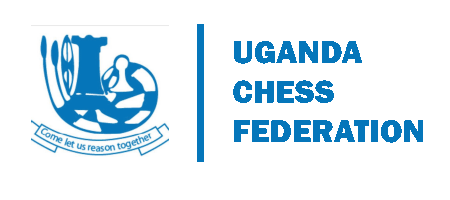
THE UGANDA CHESS GRANDPRIX SYSTEM.
THE UGANDA CHESS GRANDPRIX SYSTEM EXPLAINED.
The Grandprix system in Uganda is a circuit of Open Chess events held in Uganda annually since 2017. The Circuit has five distinct tournaments, namely the Kantinti Memorial Open Chess Championship, Uganda Open Chess Championship, Rwabushenyi Memorial Open Chess Championship, Kireka Open Chess Championship, and Zabasajja Memorial Open Chess Championship.
The competition system in Uganda honors outstanding players and represents an improvement over the previous phase-based qualifying system. It was implemented in 2017 and marked a significant advancement for chess in the country. Sometimes I think Africa requires African solutions in order to develop chess in a sustainable way. So do not be able to try new ideas!
Prior to this initiative, Uganda had witnessed various initiatives, such as the annual national schools chess team championship since the 1980s, which has now been incorporated by the FIDE (International Chess Federation). Additionally, in 2006, Uganda introduced the concept of a fifth board in the male-dominated National Chess League, a practice that has now been adopted in the region, aiming to enhance the participation of women in chess. In 2023, a sixth board was introduced exclusively for junior players under the age of 16 in the national chess league.

The tournaments Kantinti, Rwabushenyi, and Zabasajja Memorial Open Chess Championships are named in honor of individuals who have made indelible contributions to chess in Uganda. Kantinti, a remarkable eight-time Olympian for Uganda, remains a legendary figure in the sport. Rwabushenyi, a former Federation president, played a vital role in the development of chess in the early 1990s. Zabasajja, the first titled player in Uganda with the title of FIDE Master (FM), holds a revered place in the country’s chess history.
These events are made possible through the support of various entities. The Kantinti and Zabasajja events receive support from the government and gate collections, while the Uganda Open is backed by the FIDE Open AID Project, government funding, and gate collections. The Kireka Open enjoys support from the Kireka Chess Club and gate collections, and the Rwabushenyi event is sponsored by The Uganda Civil Aviation Authority, government funding, and gate collections.
Each of these events receives substantial financial backing, with an average total support ranging from 4000 to 5500 USD. , generous prizes such as certificates, medals, trophies, and cash prizes worth 2500 to 3000 USD are awarded to the participants, from the total support.
The Grandprix system serves a crucial role as a qualifier for all adult competitions( Zonal, continental, international). It employs a points-based system where the top 20 Ugandan players earn points based on their performance in each Grandprix event. The scoring system ranges from 25 points for the highest performer to 1 point for the twentieth-ranked player.
The final tally considers the top three performances of each player, offering flexibility and the opportunity to choose events strategically. In case of a subpar performance in one event, participants can still strive to improve their standing by playing in another event and earning higher points.
The top 12 players from the Granprix circuit advance to the prestigious Super 14 Round Robin circuit. Alongside these twelve players, the Junior Champion and a player selected by the Federation complete the lineup (Wild card). During Olympiad years, the top five players from the round-robin circuit earned the honor of representing Uganda as the national team.
The Winner of the RR is the national champion as well.
Often, several international events are scheduled before the conclusion of the GrandPrix circuit. The players occupying the top positions in the standings secure official and national slots to represent Uganda in competitions such as the Zonal, Africa Individual, All Africa Games, and more. In situations where the Federation faces financial constraints in sending players to continental or world events, the standings become the priority order for selecting players who can afford such trips.
It is worth noting that all of these open events are inclusive, welcoming players from around the world. Rather than concentrating all resources on a single high-budget event, Uganda has chosen to adopt a decentralized approach, spreading the tournaments across multiple occasions. This strategy provides greater flexibility and opportunities for participants to showcase their skills and aims to foster a vibrant and thriving chess community.
All events are FIDE-rated giving an opportunity to many who wish to hone their skills. Other previous sponsors of the Granprix circuit events include Kasparov Chess Foundation Africa, Lighthouse Kenya and other individuals.
The circuit of events started with low sponsorship packages but more sponsors continued to show interest and the cash prizes started going up recently. In the future, we hope to have potential sponsors, Bid for these events since they attract several players from different federations, and have numbers of participants averaging 250 currently.
Credit:
Mwaka Emmanuel
President: UCF


Are there any upcoming tournaments. Please keep me updated.